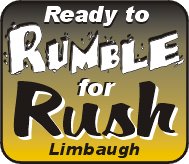Another day, another story about the potential future of free speech. Keep an eye on this court's decision. Whichever way it goes could impact you.
Fashion Model's Application to Unmask Anonymous Blogger Threatens First Amendment Protections for Online Comments
/PRNewswire/ -- A pending application to the New York Supreme Court seeks to force Google to divulge the identity of an anonymous blogger because of a few comments made on the Internet on one single day. The application brings to the fore the need to ensure that First Amendment free-speech protections continue to extend to anonymous web-based commentary.
A hearing on the motion to reveal the anonymous blogger's identity is scheduled for Wednesday, February 25th. The petitioner, fashion model Liskula Cohen, alleges that references to her as a "skank" and "ho" on the website "Skanks in NYC" constitutes actionable libel under New York law and on that ground seeks to unmask the anonymous blogger.
"Despite its seemingly petty underpinnings, this case carries serious implications," says Debra J. Guzov, co-founder of Guzov Ofsink, LLC, which is defending the anonymous blogger. "We strongly believe that if the plaintiff were to succeed in her efforts, it would move toward the erosion of our basic constitutional right to anonymous free speech."
Anonymity and the Internet
The Cohen proceeding could potentially have a chilling effect on anonymous commentary made all over the Internet. "Ideas are exchanged freely on the Internet in large part because participants can speak using assumed names or no name at all," says Ms. Guzov. She adds that anonymity not only encourages democratic discourse and allows dissenters from majority opinion to share their minority views, but it also provides vital protection from the fear of political, economic or even physical retribution for espousing those views.
"The Internet has become the predominant forum in modern society for the free exchange of ideas and opinions, however absurd, profane, insulting or rhetorical," says Anne W. Salisbury, a Guzov Ofsink attorney who specializes in First Amendment cases. "We do not have to condone everything people say on the Internet, but we must respect their right to say it."
Courts all over the country have already ruled that words such as "skank," "pimp," "tramp" and "douchebag" are not defamatory, especially in the context of blogs and other online commentary. "Context matters," Ms. Guzov notes. "Indeed, in this particular case, no reasonable person visiting a web site entitled 'Skanks in NYC' would expect to find assertions of verifiable facts."
Tuesday, February 24, 2009
NY Supreme Court Could Decide to Protect Free Speech or Not
Labels:
anonymous,
comments,
first amendment,
forum,
free speech,
internet,
new york supreme court,
protection
Subscribe to:
Post Comments (Atom)







No comments:
Post a Comment